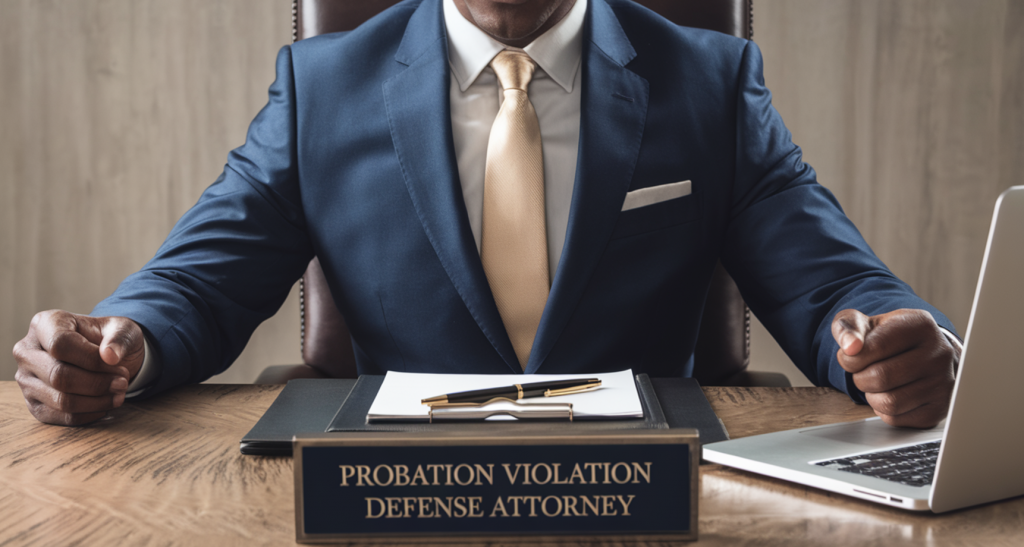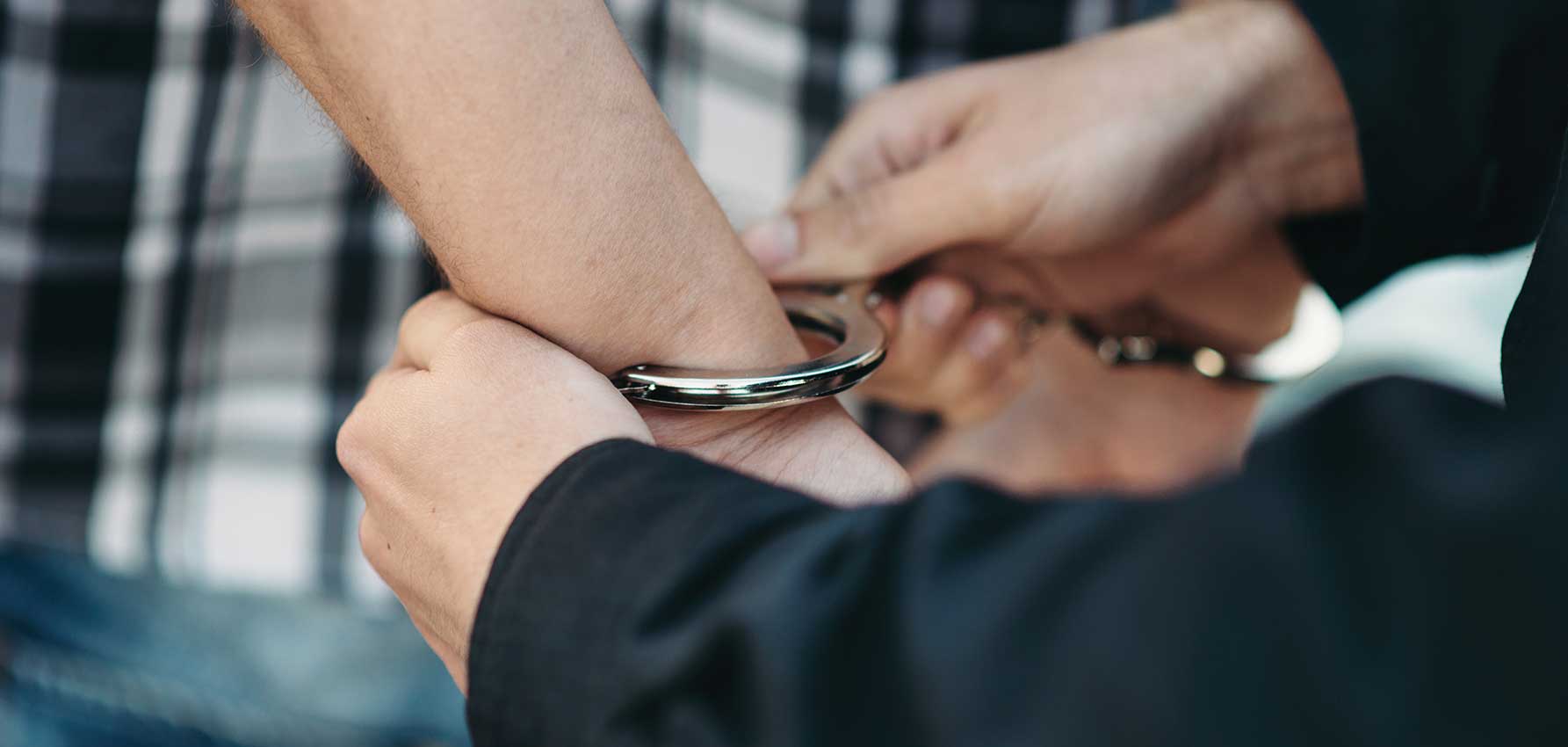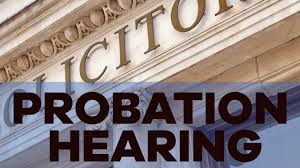Probation and Probation Violations in Michigan – What you need to know.
An allegation of a probation violation can be scary, and there can be severe consequences. Here are the answers to your questions about felony and misdemeanor violations of probation.

Misdemeanor and Felony Probation Violations
Misdemeanor and felony probation violations are high-stakes hearings where the defendant is likely looking at a potential jail or prison sentence. Violations can be classified as substantive or technical probation violations. A technical violation occurs when a defendant fails to adhere to the judge’s exact terms and conditions. For example, providing a late drug or alcohol test would be considered a technical violation. A substantive violation occurs when the defendant allegedly commits a new crime or violates a critical term of probation, such as a “no-contact” order, or if the person consumes illegal drugs in violation of the court order.
“Do I have a right to misdemeanor or felony probation instead of jail or prison time?”
According to Michigan law, probation is not a right. Judges consider probation a privilege for those who are not an immediate danger to the public or do not require incarceration as a punishment. Michigan judges will tell you that probation is a “form of leniency.” The terms and conditions can be so onerous that it may not feel much like “leniency.”
“If I get probation, does that mean I will not do any jail time?”
A defendant may be sentenced to probation only or in combination with jail. As a probation condition, jail can be served immediately or ordered at the end of probation. If your lawyer can convince the judge to delay the jail time until a later date or at the end of probation, he can then argue for the suspension of jail time at a later date. If there is a misdemeanor or felony probation, most judges will start with a presumption that jail time is appropriate.
“Will I have to report to a probation officer?”
A probation officer supervises defendants placed on probation. Some probation officers are called Field Agents or “POs.” Probation officers are Michigan Department of Corrections or court employees. Probation is usually “reporting probation,” which requires the defendant to meet with the probation officer once a month personally or, in some cases, once per week (often, this is called intensive probation). A judge also has the power to make probation (1) nonreporting, (2) report by mail, (3) report by e-mail, or (4) report by telephone. Missing or being late for a meeting with a probation officer can result in a probation violation and jail time.
“Can probation be revoked for a misdemeanor or felony probation violation?”
Because probation is a form of leniency, it can be revoked if there is a misdemeanor or felony probation violation. A revocation means termination of probation and imposition of a jail or prison sentence. Revocation usually occurs if the judge finds that the defendant has violated the terms of the probation and does not deserve another opportunity to comply with probation. However, a judge can revoke probation if the judge believes revocation is appropriate under the circumstances. Under new Michigan law, a judge should not revoke probation unless there are multiple technical probation violations or at least one nontechnical violation, such as recent criminal activity or a no-contact order violation. As you may imagine, an experienced and highly effective defense lawyer gives the defendant the best possible chance of avoiding revocation.
“How did I violate probation?”
There are several ways to violate the conditions of your probation. Some of the most common ways to violate probation are the following:
- engaging in assaultive, threatening, or intimidating behavior
- changing your residence or employment without authorization or notification to your probation officer
- failing to pay fines, costs, or restitution as ordered
- failing a drug or alcohol test (urine, blood, breath, or ETG) (or committing another offense involving the use of drugs or alcohol)
- being arrested for a new crime or being charged
- failing to report contact with the police
- missing or appearing late for an appointment with your probation officer
- failing to complete a court-ordered program (therapy, education, victim’s impact panel, etc.)
- failure to appear at a scheduled court appointment
- associating with a known criminal
- leaving the state without the permission of your probation officer
- failing to maintain school or employment
- failing to complete community service
“What happens if I’m accused of a probation violation in a misdemeanor or felony case?”
If you are accused of violating your probation, you might receive a notice of a violation hearing or discover the court issued a warrant for your arrest. You will have a right to be arraigned on the alleged violation and notified of the allegations against you. If you wish to contest some or all of the allegations, you have the right to a probation violation hearing. If the judge finds by a preponderance of the evidence (greater than 50%) that you violated probation, they can choose to revoke probation or order another type of punishment. Sometimes, a savvy defense lawyer will persuade a judge to order a fine, community service, or some other intermediate sanction instead of revoking probation. The violation will be dismissed if you are found not guilty of the probation violation allegations.

“What happens at a VOP hearing?”
At a violation or revocation hearing, the court will determine whether one or more of the probation violation allegations are true. The burden of proof is by a preponderance of the evidence, and hearsay is admissible. A preponderance of the evidence is a much lower standard of proof than beyond a reasonable doubt. The judge must be convinced by a measure greater than 50% to satisfy the preponderance of the evidence standard. There is no right to a jury trial on a probation violation. A prosecutor or a probation officer handles probation violation hearings. The government calls witnesses to testify and admit evidence to prove a probation violation at the hearing. The defendant has a right to be represented by a probation violation defense attorney, testify, call witnesses, and admit the evidence.
“What can happen if I violate probation?”
If the court finds you guilty of violating your probation, it can take any of the following steps:
- Best Case Scenario: Continue the probation without punishment or just a fine for the violation. This outcome is most likely when the probation violation is minor or technical. In these situations, the court or your probation officer may choose to give you a warning. There are several ways that a highly experienced probation violation attorney can convince a court to follow this protocol, even if the violation is more than merely technical.
- Middle Ground: The court may modify the probation conditions or extend the probation period. If the probation violation is a bit more serious (such as failure to appear, pay fines, or complete a program), your probation officer can ask the judge to modify the conditions of your probation to require more meetings, counseling, community service, or restrictions on your freedom (by setting a curfew, for instance, or tether as an alternative to jail). Only the judge can modify probation conditions.
- Worst Case Scenario: Upon a finding that there has been a probation violation, the judge may revoke the probation and sentence the defendant on the underlying offense. This scenario is more likely to happen if the probation violation is severe or you have a harsh judge.
“Can the judge give jail or prison for a first VOP?”
Suppose the judge revokes your probation because a misdemeanor or felony probation violation is substantiated. In that case, the judge has the authority to sentence you to the maximum possible jail or prison term permissible at the original sentencing. Although judges do not have to order jail time, they can do so even on a first probation violation misdemeanor or felony. A second probation violation is more likely to result in a term of incarceration. Excellent legal representation is required to keep a client out of jail or prison on a third or subsequent VOP. The best way to avoid jail time if you’ve violated probation is with a very persuasive, respected VOP defense attorney.

“Can you violate probation and not go to jail?
The probation violation defense lawyers with LEWIS & DICKSTEIN, P.L.L.C. are routinely hired by individuals whose sentencing judge warned them that jail is inevitable if they violate probation. Even in these cases and cases with repeated violations, we can frequently find a way to persuade a judge not to impose jail or prison time. Every situation is different, and a skilled, savvy lawyer will know how to formulate the best, customized strategy to avoid incarceration. For example, a defendant who repeatedly tests positive for alcohol or drugs will likely face a judge for multiple probation violations. To successfully keep a client suffering from addiction out of jail, the lawyer must make a credible argument why the judge should focus on rehabilitation rather than punishment.
“What is the penalty for a technical probation violation in Michigan?”
Most probation violations count as “technical probation violations.” A technical probation violation is any violation of the Judgment of Sentence or Order of Probation, except the following:
- new criminal activity,
- no contact order violations,
- consuming alcohol while on felony OWI probation, or
- absconding bond.
Misdemeanor Probation Violation
Someone found guilty of a technical violation of a misdemeanor term of probation is subject to the following jail sentences:
- 1st violation – 5 days in jail
- 2nd violation – 10 days in jail
- 3rd violation – 15 days in jail
- 4th or subsequent violation – up to the balance of the entire jail sentence available on the original charge.
Felony Probation Violation
Someone found guilty of a technical violation of a felony term of probation is subject to the following jail or prison sentences:
- 1st violation – 15 days in jail
- 2nd violation – 30 days in jail
- 3rd violation – 45 days in jail
- 4th or subsequent violation – up to the balance of the entire prison sentence available on the original charge.

Misdemeanor Violation of Probation Sentence
If you have a nontechnical probation violation or a 4th or subsequent technical probation violation on a misdemeanor case, the judge can give you the maximum jail sentence you could have gotten on the misdemeanor. For example, if you are on probation for an OWI 1st or Retail Fraud Third, the maximum would be 93 days in jail. If it were an OWI 2nd or Aggravated Domestic Violence, the maximum would be up to 1 year in jail. You cannot get a prison sentence for a misdemeanor probation violation.
Felony Violation of Probation Sentence
If you violated probation on a felony case, the judge can give you the maximum prison sentence you could have gotten on the original charge. If a judge considers a prison sentence for a felony VOP, a great criminal defense attorney may make the difference between a prison sentence and continued probation without incarceration. Most judges consider jail or prison as a first option when a defendant violates probation; however, successful defense attorneys know the best ways to convince judges to consider non-incarceration penalties as an option. A credible, strategic defense can help you avoid jail time for a felony probation violation.
“What happens if my original case was under advisement?”
If your original sentence was under advisement (HYTA, MIP deferral, etc.), delayed sentence (MCL 771.1), or under the Domestic Violence Statute (MCL 769.4a), you have a tremendous amount to lose. A probation violation finding may result in the termination of any advisement or other special sentencing treatment. Many highly experienced defense attorneys have successfully convinced a judge to keep the advisement or deferral status even if there was a probation violation.

“Should I have an attorney for a probation violation?”
In a word, YES! If jail, additional probation, money, or your future are important to you, it would be unwise to represent yourself in a violation of probation hearing or trust your fate to a court-appointed lawyer who barely knows you or your background. Do you know the rules? Do you know what court rules are applicable? Do you know the rules of evidence? Do you know what alternatives are available? Do you know how to score the sentencing guidelines? Only a lawyer with many years of experience as a Michigan criminal defense attorney is qualified to get you the best possible outcome in your case and help you avoid jail when possible. If you needed a major medical procedure, would you want to be treated by a general practice or discount doctor, or would you insist on a specialist? Simply, you want the best lawyer you can get.
“Do I have to go to jail if I violate probation?”
No! If a great criminal defense attorney represents you, they can give you the best possible chance of avoiding jail or prison time. At LEWIS & DICKSTEIN, P.L.L.C., we have been hired on cases where judges have told our clients that they face inevitable jail or prison time if they violate probation. In many cases, we have convinced the judges not to impose any incarceration. Even in second, third, and fourth violations, we can frequently find a way to avoid a prison or jail sentence.
“Are federal probation violations different?”
Like in state court, federal probation violations subject defendants to jail, prison, and other sanctions. A savvy federal defense lawyer can frequently persuade a federal judge to consider alternatives to revocation of probation and incarceration.
Many clients want to know how to win a revocation hearing.
The lawyers at LEWIS & DICKSTEIN, P.L.L.C. regularly win probation violation hearings. In fact, we have been known to win a revocation hearing even when other attorneys thought the client’s situation was hopeless. If you call us for a free consultation, we will take the time to talk with you, answer all of your questions, and work with you to develop a winning strategy.

Top Rated Violation of Probation Defense Attorney
When the probation violation attorneys with LEWIS & DICKSTEIN, P.L.L.C. represent clients, we have a strategy that has been crafted and tailored over decades. Our ultimate goal is to avoid incarceration at all costs and minimize other potential consequences. In every case, we begin with the aim of getting the violation of probation dismissed. Our team of attorneys will carefully examine every aspect of our client’s cases, their lives, and their other personal circumstances to develop the most persuasive argument possible for a lenient sentence or a DISMISSAL of probation violation. We offer free consultation and affordable legal fees for representation in courts throughout Southeastern Michigan, including Oakland, Wayne, Macomb, Washtenaw, Livingston, Genesee, and St. Clair Counties.
Call us today at (248) 263-6800 for a free consultation or complete an online Request for Assistance Form. We will contact you promptly and find a way to help you.














